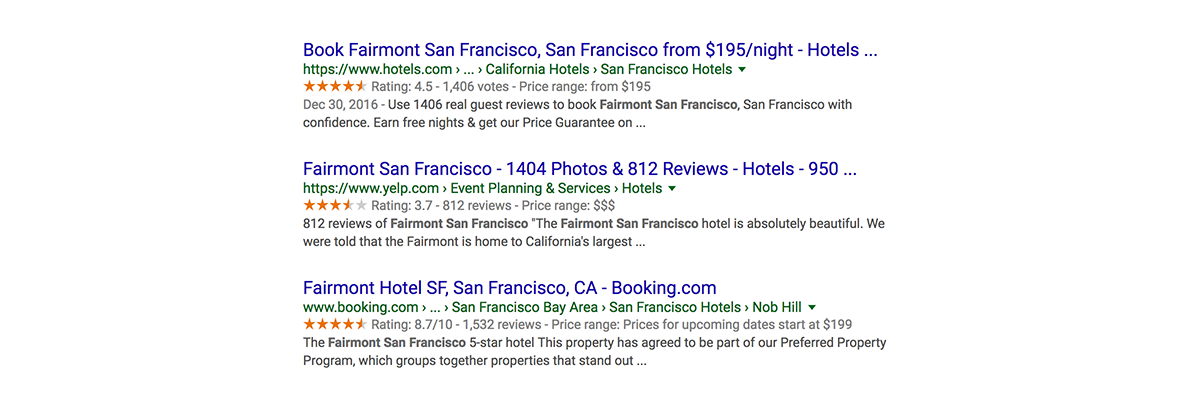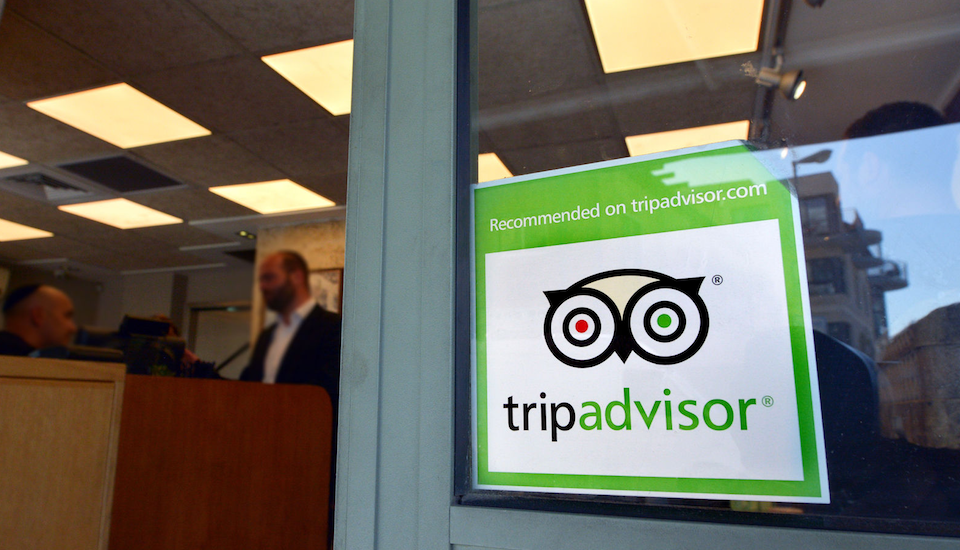Content Strategy: 4 One-Liners That Made Me Want To Read On
December 22, 2016
4 Reasons You Should Be Using Social Media Ads
April 5, 2017With some 115 million reviews on Yelp alone, there is no doubt that online reviews and the pursuit of “social proof” are here to stay. Yelp’s stated purpose, “To connect people with great local businesses,” is the foundation for its online portal which allows people to review and assign a star rating to a business to represent their user experience.
For bricks and mortar companies, the era of user-generated reviews means that owners are seeing their business reviews pop up all over the web. Yelp, Google, Facebook, YP (Yellow Pages) and Foursquare are just a few examples of sites that offer reviews. Online reviews are even being pushed to mapping applications such as MapQuest and Google Maps.
The reality is that if customers are trying to find you on the Internet, chances are they will stumble upon a review of your business. Negative reviews have a ripple effect dissuading new customers from visiting your store, buying your products or using your services. If you’re like many business owners, you don’t know where many of these reviews are, how to manage them, or if you should respond.
The growing role of online reputation management
Not surprisingly, online reputation management is a growing vertical in digital marketing. To safeguard your company’s reputation, it’s essential to proactively find, track and manage your company’s online reviews. Reputation management services typically:
- Utilize software to locate your online reviews on 3rd party sites
- Offer a review option on your website to actively collect your own reviews
- Funnel 3rd party reviews into a portal for easier management and faster response times
- Filter and then render positive 3rd party reviews on your company’s website
- Redirect negative reviews collected on your website to your management team via email
Establishing a reputation management process takes time and organization. It’s a marathon, not a race. Here are three reasons it’s worth the effort:
1. Online reviews do not require your approval
Whether it’s an unofficial Facebook page or unclaimed Yelp listing, review sites are collecting reviews on your business whether you choose to monitor them or not. Unofficial or unclaimed pages are “unmanaged” as they were not set up by the business in the first place and come about because someone checks-in or reviews the business. These portals don’t require your approval to generate review pages about your business, and they are visible to your customers. As important, negative reviews need to be answered, and you can’t respond to a review if you don’t know it’s out there.
I will share an example. Our agency has a client with 9 bricks and mortar locations. When we undertook a recent reputation management audit for them, we found:
- 9 unofficial Facebook pages with reviews
- 9 unclaimed Yelp pages, 5 with reviews
- 9 Google My Business pages with reviews
- 9 listings on YP, no reviews
- 6 listings on Judy’s Book, no reviews
- 1 listing on Citysearch, no reviews
- 1 listing on Foursquare, no reviews
In total, we found almost 120 online reviews on the Internet that corresponded to the 9 locations. In essence, there was a growing body of reviews on the web for this company, and they were unaware of many of them. Listings on Yellow Pages and online directories count too, because they are available for future reviews, and therefore, need to be monitored.
Establishing a reputation management process takes time
and organization. It’s a marathon, not a race.
2. Positive online reviews boost the credibility of your business
When you do a search in Google, sometimes you will see gold stars, or rich snippet reviews, under a website address. Here is a snapshot of some rich snippet reviews for the Fairmont San Francisco hotel associated with their listings on hotels.com, Yelp, and booking.com. Under each of the website names, you will see gold stars that represent the average star rating for the reviews on that particular site.

The rich snippet stars validate that Google is crediting Fairmont San Francisco with reviews collected on these 3rd party websites. Knowing that any business can essentially write and post reviews on their own website, rich snippet reviews continue to grow in importance. Positive reviews in the form of 4 and 5 stars increase click-through rates and boost business credibility and foot traffic. Think about it. When’s the last time you clicked on a search result for a business with a one or two star rating?

3. Online reviews are an integral part of your brand reputation
No longer just word of mouth or direct referrals, online reviews now play a prominent role in your brand reputation. In BrightLocal’s Local Consumer Review Survey 2016, two facts, in particular, confirm the importance of online reviews:
- 84% of people trust online reviews as much as a personal recommendation
- 74% of consumers say that positive reviews make them trust a local business more
These statistics attest to both the power of online reviews as well as their increasing role in an organization’s reputation. They are an integral part of a company’s digital footprint and directly influence how people perceive the brand.
No doubt the continuing growth of the Internet means that online reputation management is here to stay. Much like the ripples from a raindrop that hits the surface of a pond, reviews continuously widen your audience reach and spread important information that potential customers seek. When it comes to your online reputation, it’s a case of manage or be managed.
_________________________
Do you know what people are saying about your business online? Use our free review scan and get an instant reputation report, and if you would like to explore a reputation management program for your business, contact us.




